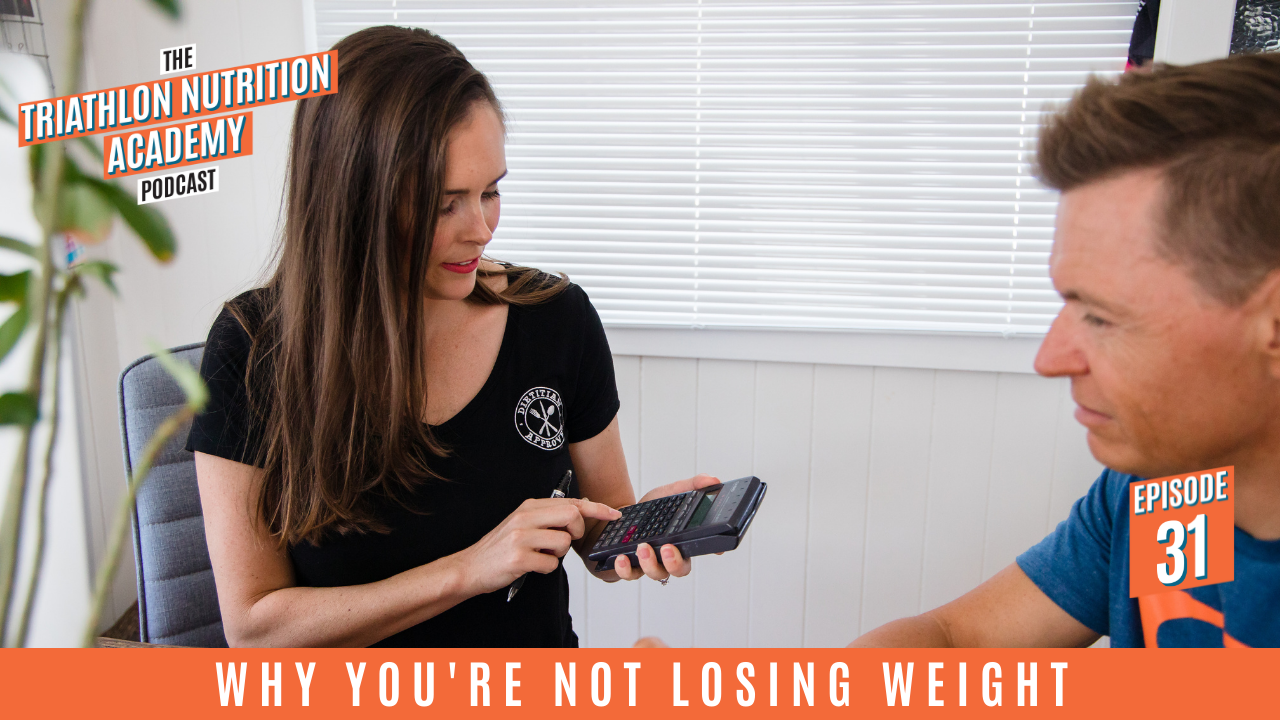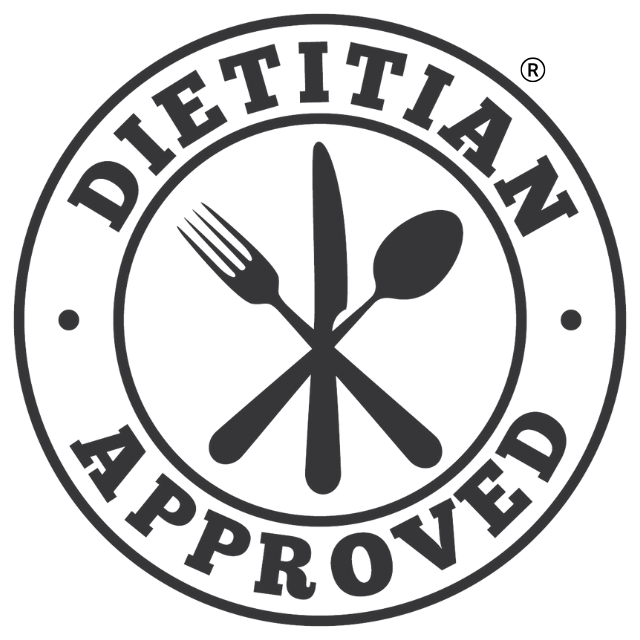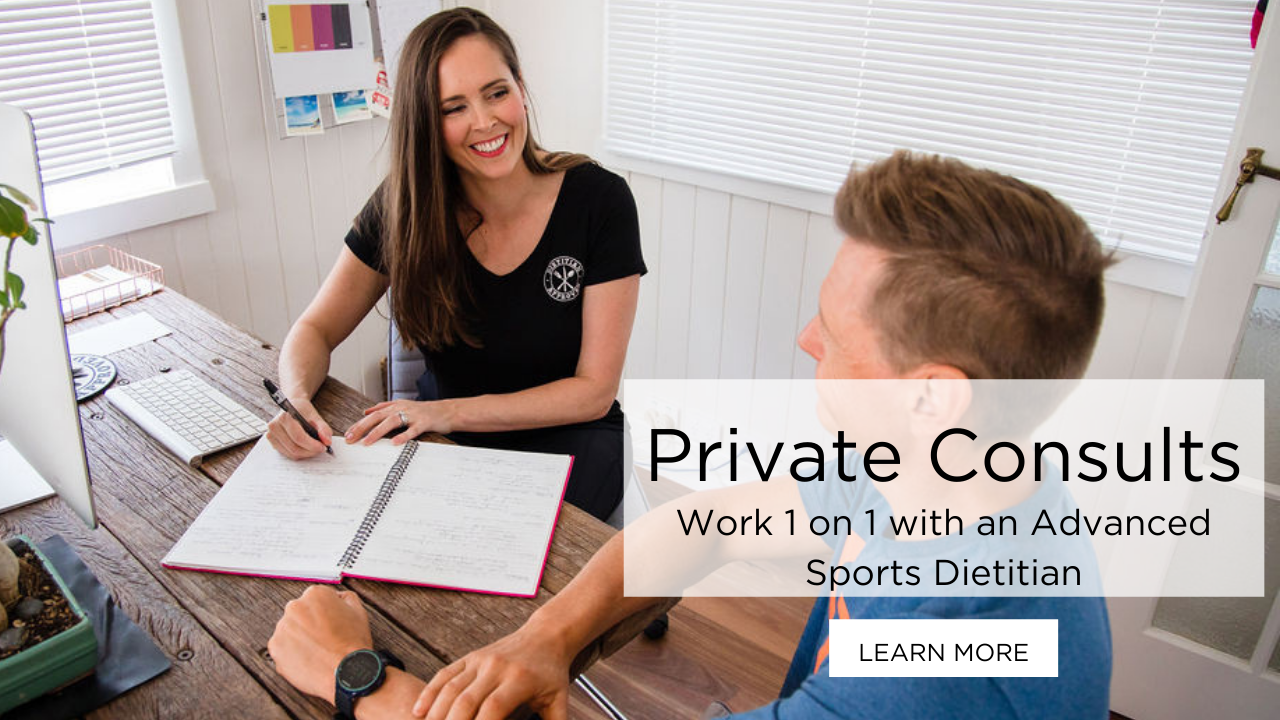
Why You're Not Losing Weight
Mar 11, 2022Why Am I Not Losing Weight?
Are you frustrated you can’t seem to reach your body composition goals? You train more than most people but still have a little excess body fat to lose.
Are you constantly trying to eat a little less to burn more fat and end up starving all the time? Or absolutely wrecked after training?
That is definitely no way to live
But don't stress, you're not alone. A lot of athletes who I work with struggle with the same challenges.
Here are 3 reasons why you might not be losing weight as an endurance athlete:
1. You can’t out-train a bad diet
To lose body fat, you need to be in a calorie deficit. It's as simple as that. You need to consume less energy than you're burning. But the types of foods that you're consuming are really important as well.
- Even if you train for 18 hours a week, not being strategic with your nutrition can cause you to hold on to body fat
- Your body is really smart at recalibrating – if you do more training it will send out your hunger hormones to help you catch up the deficit you’ve just put it in. Making you more hungry and more likely to eat
- We often make poor food choices when starving
- You can cheat your exercise and overestimate the calories you’ve burned
- Or you can eat as a reward for exercising or have the mentality of “I’ve trained so I’ve earnt this / I can eat whatever the hell I want!”
- Everything we eat and drink affects our performance
- Are you a beat-up Honda filled with cheap economy fuel or are you a high-performance Ferrari running on premium?!
What should I be eating to lose weight?
- Eat mindfully - really connect with, taste and savour the food you consume
- Eat quality, real whole foods.
- Fresh fruit and vegetables – at least 30 different types per week – variety is key
- Have a nice balance of carbohydrates and protein-rich foods at your main meal
- Include moderate amounts of healthy fats
- Sources such as avocados, nuts, seeds, olive oil, oily fish (herring, tuna and mackerel)
- These have good anti-inflammatory and antioxidant properties
- This is important for things like brain health, cholesterol management etc.
- Fats will also help you feel fuller for longer
- Fats are essential for the stability of our body. Don’t be afraid of healthy fats
2. You’re sedentary outside of training
- What do you do outside of training? Are you sedentary? Do you have a desk job?
- Are you overcompensating for training with too much food?
- You can track the amount of energy for different types of training days then take a look at what you’re doing outside of training to see what’s out of balance for you.
What makes up our total daily energy expenditure (TDEE)?

- Basal Metabolic Rate (BMR)
- This is the biggest component - making up about 60-75% of TDEE
- This is the energy expended from just living and breathing e.g. our heart pumping, our lungs dilating
- This is highly individual and is based on your height, weight, and many other factors
- Online calculators can help you estimate your BMR - however please note: these are only predictions!
- Non-Exercise Activity Thermogenesis (NEAT)
- This accounts for about 15% (or more) of TDEE
- This is what we burn through our activities of daily living e.g. walking around, cleaning, doing washing, making dinner etc.
- This varies a lot between individuals and can be a component to be more conscious of if you’re trying to drop more body fat
- Exercise Activity Thermogenesis (EAT)
- This is the amount of calories we burn during exercise
- It can vary from 10-30% of total energy expenditure and changes depending on the type of training you’re doing, the intensity and duration.
- I’d encourage you to learn how to eat differently to support different types of training days to maximise your performance goals but also body fat loss goals
- Thermic Effect of Food (TEF)
- This accounts for about 10% of TDEE
- This is the amount of energy expended to digest, absorb and store the food we eat
Understanding what our total daily energy expenditure is made up of, helps us to manipulate the components to drive body fat loss if that’s what you’re chasing.
3. You’re under-eating
- Are you legitimately eating below your Basal Metabolic Rate?
- Indicators may be:
- niggly injuries all the time (not just bony injuries, but soft tissue, ligament or tendon type injuries)
- your hormones (male and female) are out of whack
- females - is your menstrual cycle impacted?
- males - is your libido low?
- Are you trying to cut carbs too hard?
- Carbs are NOT evil
- As an endurance athlete you need carbohydrate - make peace with carbohydrate and include some every day
- The problem is a lot of people eat the wrong kind of carbohydrate
- Some carbohydrate comes with a whole whack of fat
- Carbohydrate intake should be periodised across the week depending on your training program and what your goals are
- Your intake should differ on a rest day versus a really hard double session day
- At the Triathlon Nutrition Academy, I teach my athletes to do exactly that and develop a meal plan for them that’s periodised to their training program.
It’s all about BALANCE!
SUMMARY
The key to triathlon nutrition is understanding how to do all this for your training program. And that will constantly evolve. It'll be different when you're heading into a key race. It'll be different when you're in your offseason - if you have an offseason ;)
It is one of the key things that I teach my Triathlon Nutrition Academy athletes how to do because it is so pivotal to their long success in the sport.
It will help you:
- Obtain and then maintain your ideal body composition;
- Having energy throughout the day;
- Push hard in the back end of sessions, and
- Recover quickly so you can get back up and go again soon.
If you're not the ideal body composition that you want to be or you think you should be, then I’d encourage you to do some work with your nutrition. Whether you're not eating the right things at the right times and then playing catch up and overeating later. Or just not eating the right foods for you altogether.
Automate some of these things. We want to make them just pure habits so you don't have to think about it, you don't have to stress about what you're doing. Get yourself a meal plan so you understand exactly what to eat and when to get the most out of your high-performance engine. And reach the potential you’re truly capable of.
To go deeper, listen to the Triathlon Nutrition Podcast Episode 31 - Why You're Not Losing Weight
If you’re interested in joining the Triathlon Nutrition Academy, pop your name on the waitlist NOW | Join the TNA Waitlist
If you are looking for a Sports Dietitian and want to learn more about working with me, click HERE to see what I offer for private, 1 on 1 consultation.
Don't miss a beat!
New moves, motivation, and classes delivered to your inbox.
We hate SPAM. We will never sell your information, for any reason.



